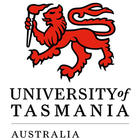Bachelor of Biomedicine
Bachelor of Biomedicine
Learn the sciences that underpin human medicine Your studies include core subjects across a breadth of biomedical sciences, including anatomy, physiology, biochemistry, molecular biology, neuroscience, genetics, immunology, and microbiology. In addition, this degree offers a choice of two majors that provide specialist knowledge and skills in either medical research or…
Categories
COURSE DESCRIPTION
Learn the sciences that underpin human medicine
Your studies include core subjects across a breadth of biomedical sciences, including anatomy, physiology, biochemistry, molecular biology, neuroscience, genetics, immunology, and microbiology.
In addition, this degree offers a choice of two majors that provide specialist knowledge and skills in either medical research or medical sciences. You can also choose to study both majors, greatly broadening your career options upon graduation.
Hands-on learning from researchers actively connected to the healthcare sector
Our biomedicine course is designed and taught by active medical researchers at the Tasmanian School of Medicine and the School of Health Sciences. It also draws on the expertise of our specialist research and teaching institutes: the Menzies Institute for Medical Research, and the Wicking Dementia Research and Education Centre.
As the single university for Tasmania, we provide unparalleled access and connection to the local community, health system, and institutes. This means that throughout your studies you are learning from experts who are directly engaged with the health sector both locally, nationally, and internationally.
We also provide access to the global knowledgebase of research groups, institutes, and organisations through our ongoing collaborations and research.
You’ll develop valuable knowledge, skills and confidence in research methodology, scientific observation, and analysis, and advance your ability to identify and solve problems, think critically, and communicate science to a broad audience.
Learning Outcomes
1 Apply and translate biomedical science knowledge in the context of health and disease
2 Conduct experiments, analyse and interpret scientific data in a responsible and safe manner
3 Source, critically evaluate and synthesise information relevant to biomedicine
4 Communicate biomedical information in a range of modes to a variety of audiences
5 Conduct work individually and collaboratively within legal, ethical and professional frameworks relevant to the biomedicine discipline
Career outcomes
The current world-wide health crisis highlights the importance of biomedicine in helping to manage and treat disease on both an individual and population basis. Our course will give you the skills to undertake technical analysis and research to assist medical scientists and clinicians in expanding knowledge, and in the diagnosis, treatment and prevention of disease.
You can apply your expert scientific skills and research findings to develop a better understanding of illnesses and other medical problems, and not be limited to a single professional discipline. With your biomedical skills and knowledge, you can seek out a career in research institutes, university departments, hospitals, pathology laboratories, or pharmaceutical and biomedical companies.
Jobs include working as a medical scientist, medical researcher, geneticist, epidemiologist, and many other medical science professionals. Other opportunities include science communication, advisory roles, policy development, and disease surveillance in industry, government, non-government organisations, and health organisations.
REQUIREMENTS
Admission to undergraduate courses at the University of Tasmania requires the completion of qualifications equivalent to a 12th year of education in Australia.
Course Specific Requirements
The following course specific requirements must be met to be eligible to study this degree.
To be eligible for an offer, you must have studies or experience equivalent to a satisfactory achievement in the following Tasmanian Senior Secondary subjects:
· CHM Chemistry or equivalent
IELTS (Academic) Score 6.5 (no individual band less than 6.0)
TOEFL (iBT) 88 (no skill below: Reading 16; Listening 16; Speaking 18; Writing 22)
PTE Academic 58 with no score lower than 50
English for Academic Purposes 2 – 65% (no individual score less than 60%)
Cambridge English C1 Advanced 176 with no less than 169 in any skill
EDUCATIONAL INSTITUTION
The University of Tasmania was officially founded on 1st January 1890 and is located at Sandy Bay, Tasmania. In addition to the main campus at Sandy Bay, it also operates out of the Newnham Campus and the Cradle Coast Campus. The most popular courses offered are the environmental studies that include wilderness management, marine sciences and indigenous studies in Tasmanian literature. Other unconventional courses include agriculture development, studies on the community and population and ocean study programs. The university also comprises of a Music Conservatorium, Art school and a School of Clinical studies.




